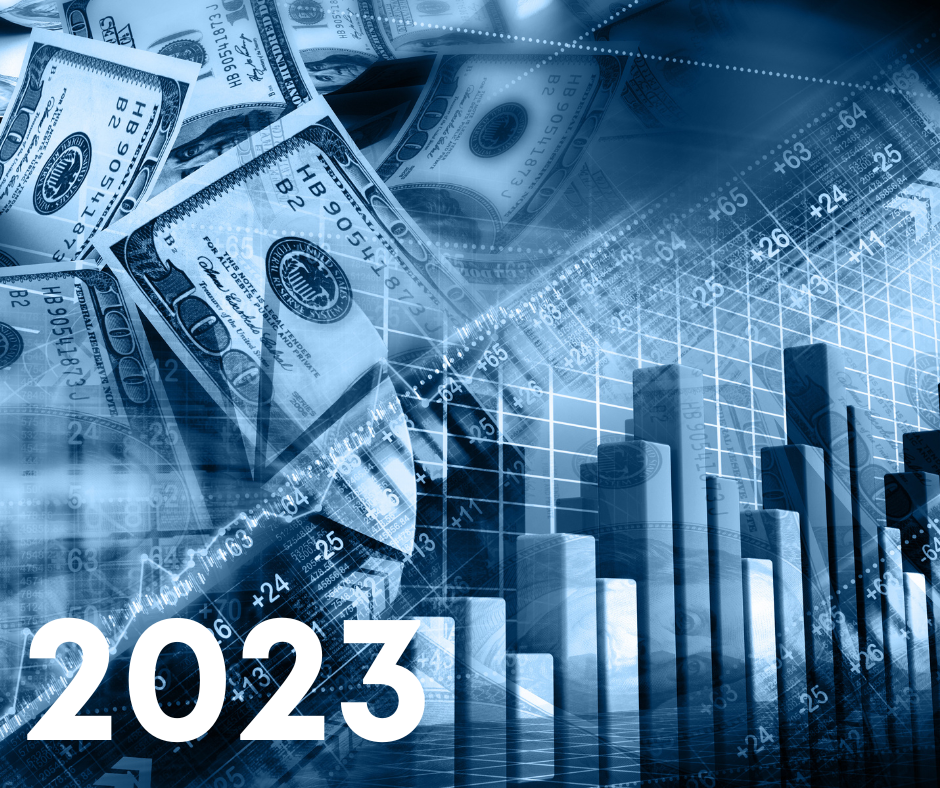
THE MENSER REAL ESTATE GROUP BLOG
New Loan Limits, What This Means for You
The Federal Housing Administration (FHA) has just increased the amount of money that can be borrowed through its mortgage programs by more than $51K in most areas. In high-cost locations, the increase is even greater. New limits will take effect in 2023.
The increases will allow more borrowers to take advantage of FHA’s benefits:
Low down payment options
Lower total cash-to-close requirements with gift or seller contributions
More lenient and streamlined refinancing
Ability to combine purchase and rehab financing
In some high-cost areas, higher loan limits than conventional mortgages
Here are the specifics:
In most areas, the FHA loan limit will be $472,030, a 12% increase over 2022’s limit of $420,680.
In high-cost areas, the limit moves to $1,089,300, a 12% increase over 2022’s $970,800.
In some lower-cost areas or those with higher costs of construction, limits will vary.
If you have questions about what this change could mean for you, please reach out. And if you have friends who may benefit from the news, please pass it along. I'll be honored to help them too.
Don't Lose Your Deposit!
Some homebuyers lose deposits of $10,000, $20,000, or more due to high mortgage rates! Do not let this happen to you! There are new programs out to help with higher rates.
Dahianara Lopez and her husband Paulo Echeverry run a food truck outside of Orlando. "We work together every day," she says while cooking up Colombian sausages on the truck's big stainless steel grill.
They say by putting in long hours over several years they were able to save up a down payment for a house.
"We think that renting is like we are wasting money, you know?" says Lopez. "So we want to buy a house, to have something that we can say is mine."
Late last year, they signed a contract to buy a new home before it was built for about $500,000 and put down a $25,000 deposit.
The couple has been very scared that they won't qualify for a mortgage anymore and will lose that big deposit.
"The sales guy, he always tells us we're going to lose the deposit if we don't buy the house," Echeverry said. "Even the area sales manager... she told me, too, that we're going to lose our money."
Some people have already lost their money. Karen Jensen works as a school nurse at an elementary school in Tigard, Ore. She and her husband wanted a bigger house for them and their three kids.
We put just a little over $15,000 down as a deposit," she says.
But after interest rates jumped so much higher they decided to back out of buying it, and she says the builder kept their deposit.
If you are in this situation please call as there are new programs coming out to help people just like this. A lot of loan officers got in the business in 2019 when it was a different market and do not understand how to navigate this market and where it is going. I have been helping homebuyers since 2004! There are different programs we have at UWL to help you get into your new home. Before you walk away from your 20k deposit, call me first and I can walk you through how we can help!
Another Mega Interest Rate Hike is Coming—What this Means for Your Finances
Americans should prepare their finances for even higher interest rates this year as the Federal Reserve continues its fight against inflation.
Although the Fed has increased its benchmark short-term fed funds rate by 3% this year, with the last three rate hikes at a whopping 75 basis points each, consumer inflation continues to linger near a 40-year high.
It also is expected to telegraph more rate hikes to come as it focuses on combating inflation, so consumers should expect their costs to head even higher and job losses to mount as economic growth slows.
Although the Fed doesn’t directly control consumer interest rates, its rate increases ripple through the economy and ultimately, hit businesses and consumers and slow demand and inflation.
“Given the environment of rising rates and a slowing economy, the financial steps for households to take are boosting emergency savings, paying down high-cost debt, and maintaining contributions into, and a long-term perspective on, retirement accounts,” Greg McBride, Bankrate chief financial analyst, said.
How high will interest rates go?
The Fed's expected to raise rates Wednesday by 75 basis points, which would mark the fourth consecutive increase of that size.
And likely that won't be the end. The Fed's year-end median fed funds forecast is 4.4% and 4.6% next year before heading lower, according to its economic projections. That means there’s likely another rate increase coming at the Fed meeting in December.
Economists generally expect the Fed to slow its rate hikes in December with a half-point rise to get inflation closer to its 2% target, but another 0.75% hike isn’t out of the question. Deutsche Bank analysts, for now, expect a fifth consecutive supersized 0.75% rate increase in December.
In September, overall annual inflation dipped to an 8.2% pace from August's 8.3%, but the core rate without the volatile food and energy sectors rose 6.6%, from 6.3% the prior month and the largest increase since August 1982. Both topped economists' mean forecast and unleashed worries that inflation's getting entrenched in areas that'll be harder to control if the Fed doesn't act faster.
How does this affect my plans to buy a house?
Homeowners with existing fixed-rate mortgages won’t see any changes. But recent and prospective homebuyers are being socked by higher rates that take into account projected Fed increases through 2022.
"The speed at which mortgage rates have risen is more destabilizing than the actual level of rates,” Yelena Maleyev, KPMG economist, said. “We have seen mortgage rates higher than 7% before, but we never have seen rates double in a matter of months. “
The average rate for a 30-year fixed-rate mortgage in the week ended Oct. 21 was 7.16%, the highest rate since 2001, according to Mortgage Bankers Association (MBA).
That's dampened borrower demand for both mortgage purchases and refinances. For the week ending Oct. 21, mortgage applications fell 1.7% to the slowest pace since 1997, MBA said. Refinance applications were essentially unchanged, but purchase applications declined 2% to the slowest pace since 2015 and more than 40% behind last year’s clip, it said.
Economic Outlook for 2023
The International Monetary Fund predicts global growth will slow to 2.7% next year, 0.2 percentage points lower than its July forecast, and anticipates 2023 will feel like a recession for millions around the world.
Aside from the global financial crisis and the peak of the Covid-19 pandemic, this is "the weakest growth profile since 2001," the IMF said in its World Economic Outlook published Tuesday. Its GDP estimate for this year remained steady at 3.2%, which was down from the 6% seen in 2021.
"The worst is yet to come, and for many people 2023 will feel like a recession," the report said, echoing warnings from the United Nations, the World Bank and many global CEOs.
More than a third of the global economy will see two consecutive quarters of negative growth, while the three largest economies — the United States, the European Union and China — will continue to slow, the report said.
Why the Fall Housing Market Won't Be Great for Buyers—or Sellers
The housing market is having a bit of a Dr. Jekyll-Mr. Hyde moment.
On the one hand, buyers are finally getting some relief from the skyrocketing prices and break-neck selling speeds of the last two years. On the other, mortgage rates are soaring — reducing affordability and keeping would-be sellers on the sidelines.
The result is a market that’s better for some, worse for others and, well, not really ideal for anyone.
As Nik Shah, CEO of Home.com, puts it, “Buyers and sellers will both endure a tough fall housing market.”
He’s not wrong — but what exactly does “tough” look like? And will things improve or get worse as time goes on? Here’s a look at what’s in store for housing this fall.
Moderating home prices
Home prices have been on a steep runup since the early months of the pandemic. The median home price in the second quarter of 2020 was just $322,000, according to the U.S. Census Bureau. By the start of this year, it had surpassed $440,000 — an almost 37% increase in less than two years.
Fortunately, price growth appears to be slowing. Home prices were up 14% between September 2021 and September 2022, down from the 18% annual increase seen back in June.
According to housing experts, annual price growth should decelerate even more as 2022 comes to a close. Price declines, though, probably aren’t in the cards — at least in the next few months.
As Jonathan Miller, CEO of appraisal firm Miller Samuel Inc., explains, home prices tend to be “sticky on the downside” — meaning they take longer to come down than they did to go up.
“Buyers need to be patient,” Miller says. “Sellers have been in the driver’s seat and then some during the pandemic era and need time to adjust to the pivot in market conditions.”
As sellers start facing reality, price growth will decelerate faster and, by next year, could even decline. Over the next few years, prices could fall as much as 15% from their 2022 peak, according to Moody’s Analytics.
High mortgage rates
While lower prices are certainly something to look forward to, in the meantime, buyers have another challenge to overcome: much higher mortgage rates. The average rate on 30-year mortgage loans is now above 6.5%. We at UWL Rojo Mortgage team can still get rates in lower 6’s and sometimes highs 5 pending credit. The more than double the rates seen last year. By some projections, rates could reach as high as 8% by year’s end. Hurry and go to www.rojomortgage.com and get started to buying a house now The lower the rate the better vs a 10-15 percent dip in the housing price.
“With the Fed still working to bring inflation back down, all indications are that short-term rates will continue to climb, creating upward pressure on longer-term rates like mortgage rates,” says Danielle Hale, chief economist for Realtor.com. “This will mean that the cost of taking on a mortgage is likely to keep going up.”
Those are worrisome words, considering how much recent rate increases have already hurt affordability. On a median-priced home, the typical monthly payment is now up over 70% — or about $900—compared to just one year ago.
“Buyers have a lot of hurdles to get over,” says Daryl Fairweather, chief economist for real estate brokerage Redfin. “It’ll be easy to get an offer accepted on a house, but a lot of people just can’t even get past the point of affording the mortgage.”
Check out our loan options and call us with your questions, Rojo Mortgage Team, 916-548-3942.
10-year and 2-year Treasury yields fall as traders begin new quarter
The yields on the 10-year and 2-year treasuries fell on Monday as markets began a new quarter and investors digested manufacturing PMI data.
The benchmark 10-year Treasury was down 19 basis points at 3.611%. The yield on the policy-sensitive 2-year Treasury was at 4.062%, down by about 14 basis points.
Yields and prices have an inverted relationship. One basis point is equivalent to 0.01%.
Markets began the final quarter of the year on Monday, with investors still digesting the negative end to the third quarter that saw the Dow Jones Industrial Average, S&P 500 and Nasdaq Composite stumble.
A gauge on the U.S. manufacturing sector fell last month, indicating that economic activity in the space is close to contracting.
The Institute for Supply Management said Monday that its manufacturing PMI [fell to 50.9 in September] from 52.8 in August — barely in expansion territory. A print below 50 indicates contraction, and one above that level points to an expansion.
Several Federal Reserve speakers are also due to make comments. In remarks last week, the central bankers had struck a hawkish tone and broadly indicated that they would continue to fight persistently high inflation by hiking interest rates.
That has raised concerns about a recession among some investors who fear the central bank is hiking rates too quickly.
Scott Rojo and the Rojo Mortgage Team are here to help you navigate these times. Call our office at 916-548-3942. We're here to help!


















